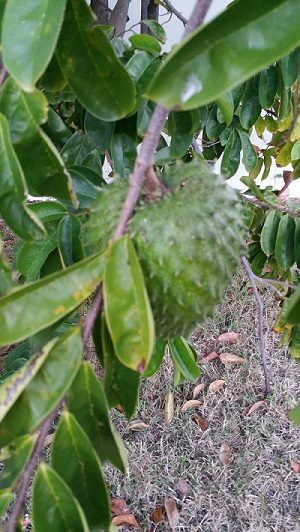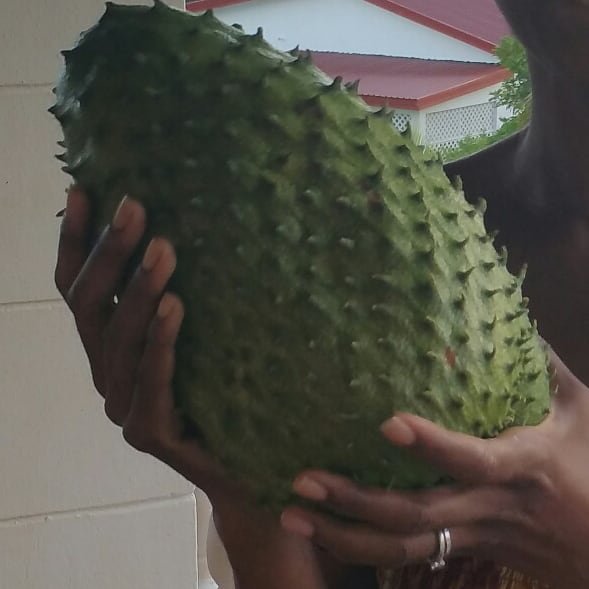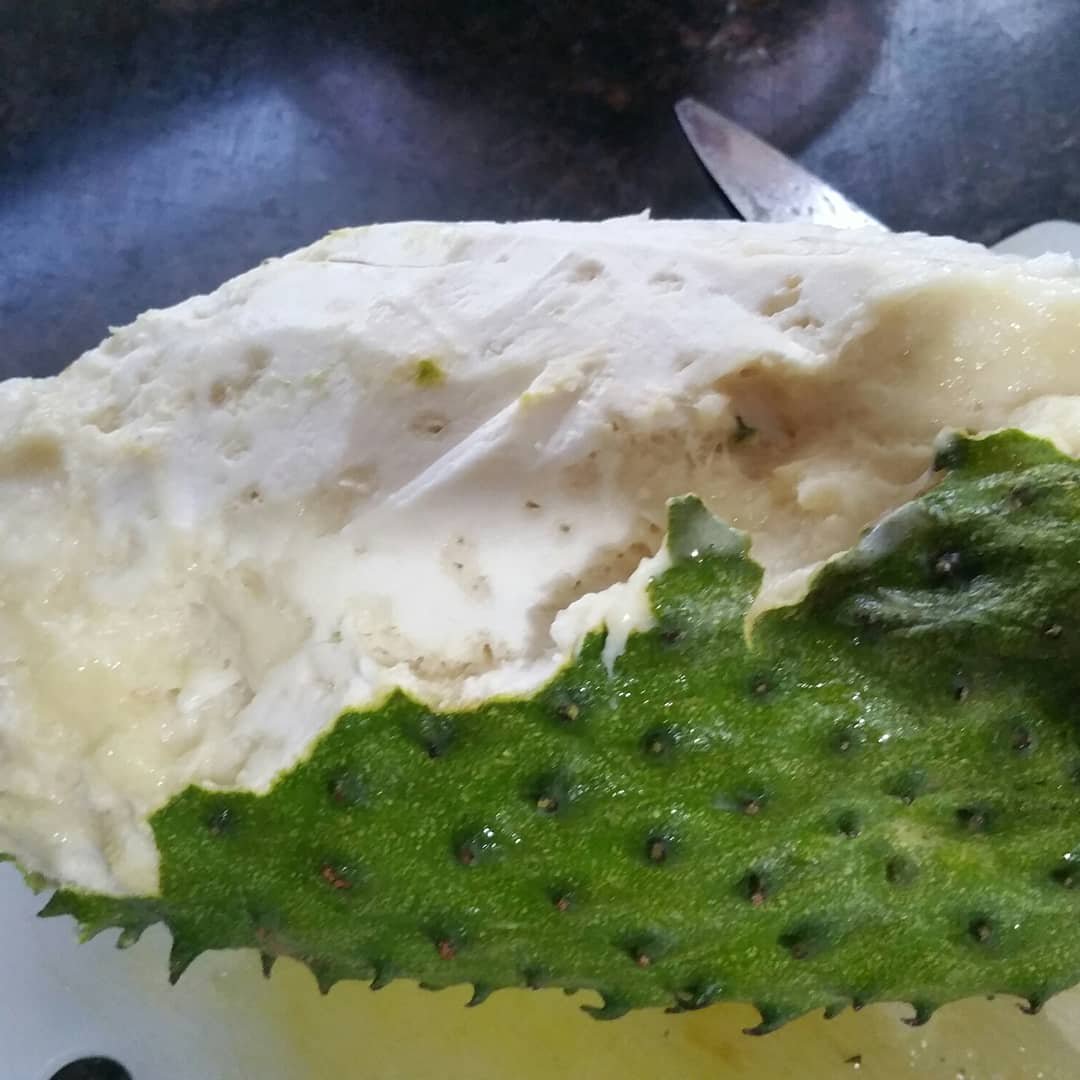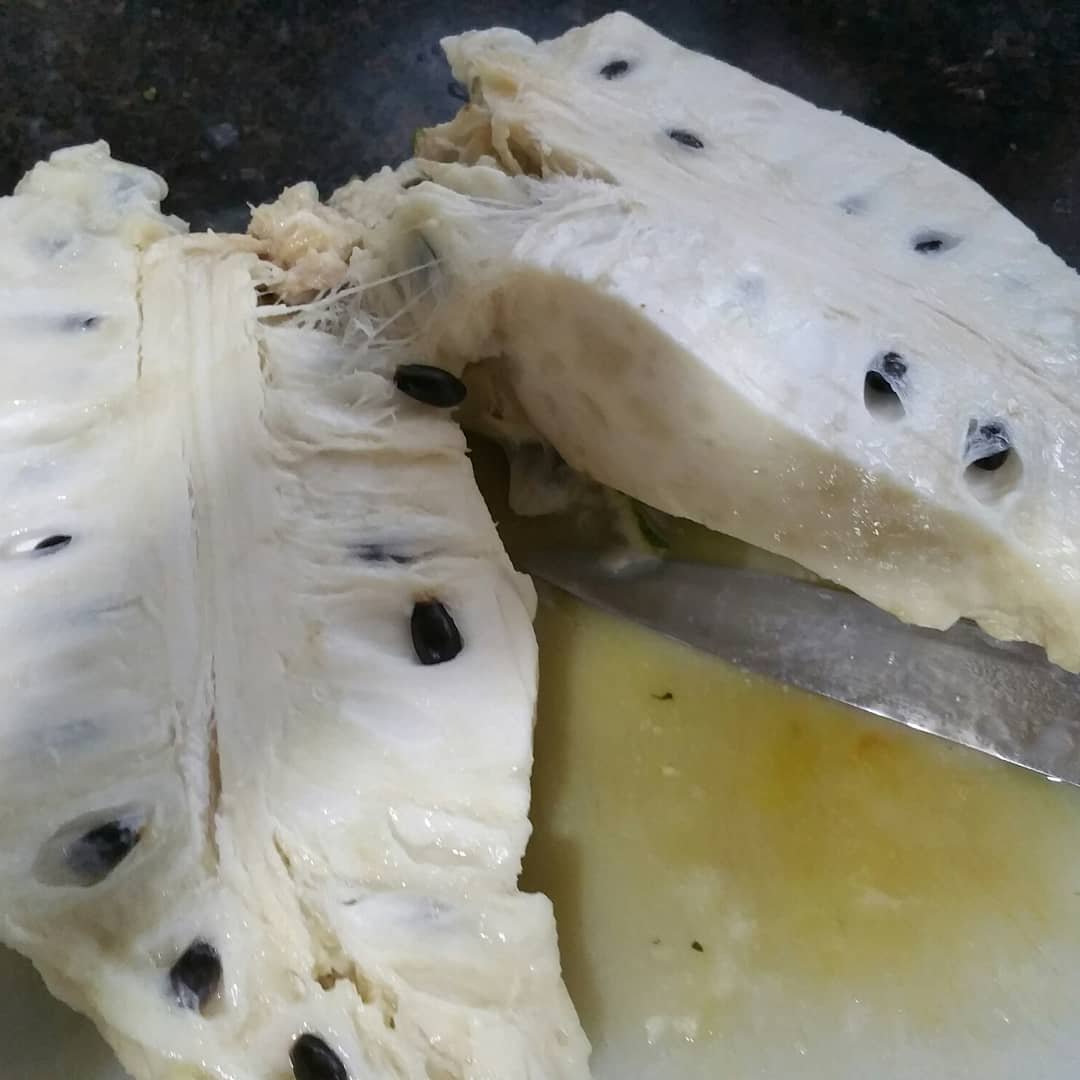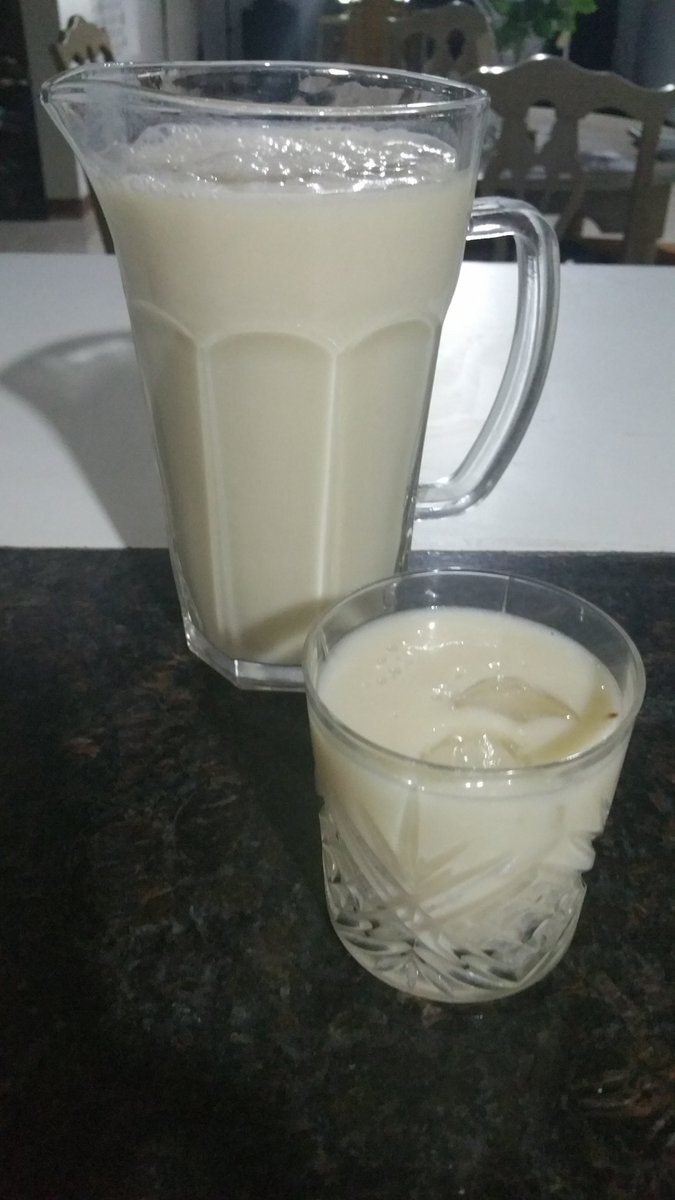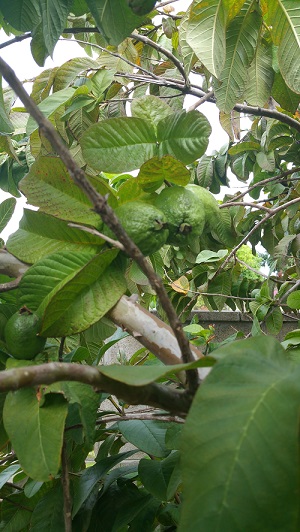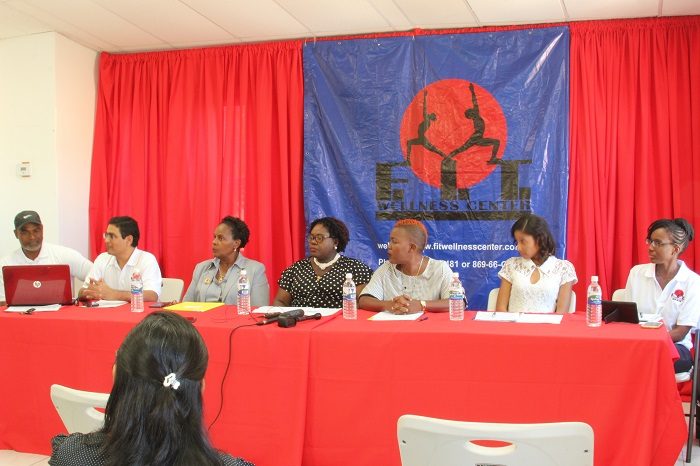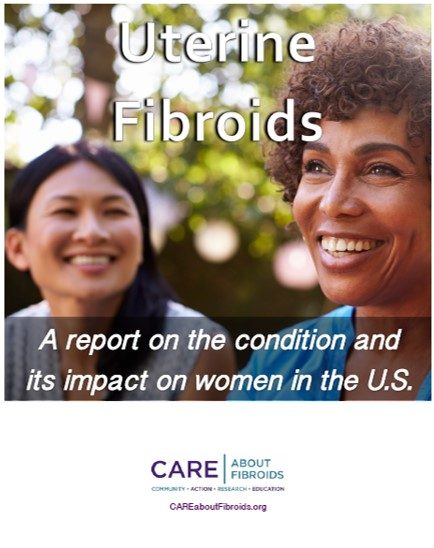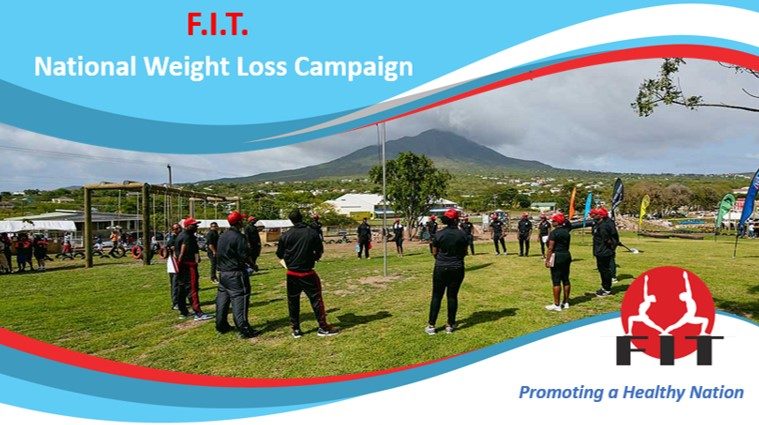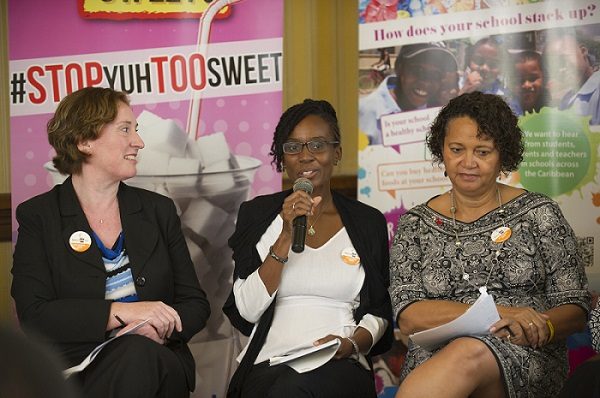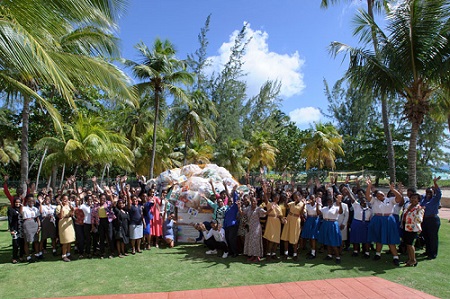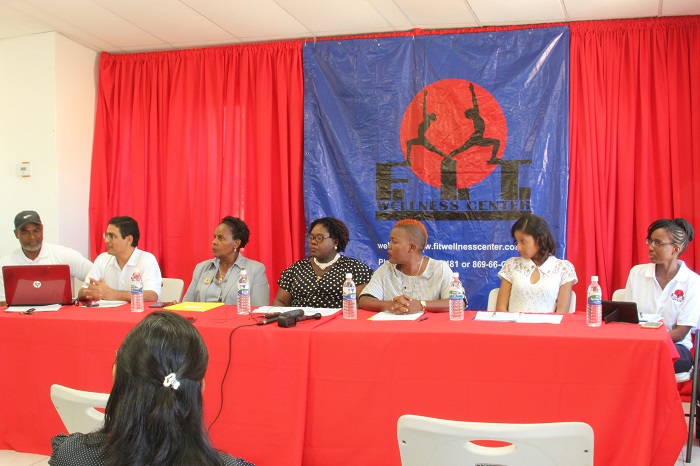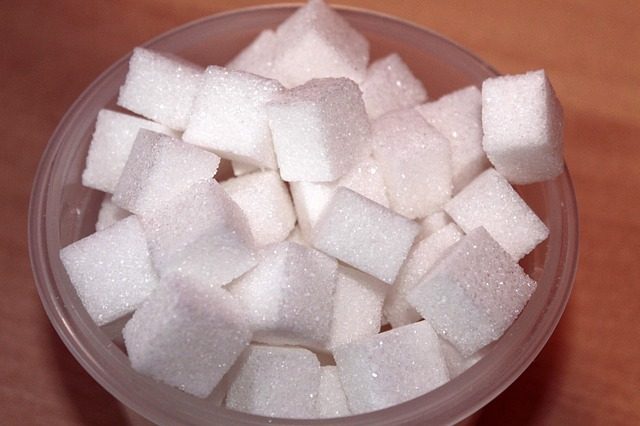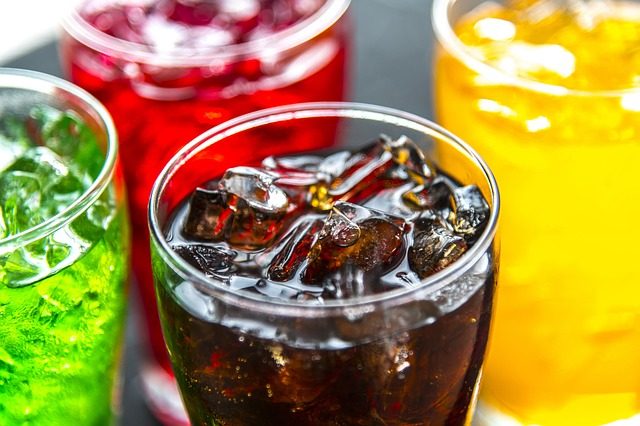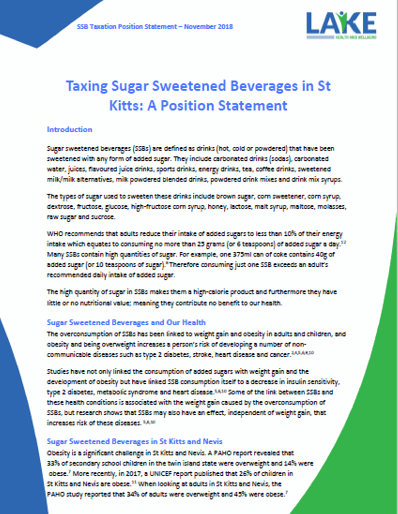Improving Our Health and Wellbeing Through Gardening: Fruit Trees – Soursop and Guava
Hello all and welcome back to our gardening and health blog series. We’ve had a fantastic year exploring the great outdoors and the health benefits of gardening. This blog post is the second of our two-part blog on fruit trees. Our final blog in this series, coming up next month (hopefully!), will focus on herbs.
Last time, we discussed our mango and sour orange trees and today we’re going to discuss two more trees that we have growing in our (Abi Begho’s) garden in St Kitts – soursop and guava. These are trees that we inherited from the previous owner of our house and we were so pleased to have these growing nicely on our property. They have given us much joy allowing us an easy and fun way to introduce a few more fruits into our diet.
Soursop
Some background
Soursop is a fruit known by a few names – custard apple, guanabana and Brazilian paw paw. It is a green, prickly fruit with a white flesh that forms on the graviola tree. It can be used to make a juice, ice-cream, sorbet, syrups and sweets.
It contains vitamin C, dietary fibre, iron, vitamin B, B2, magnesium and potassium.
Soursop has received a lot of attention over the past few years due to its anti-cancer properties in laboratory settings. Studies have shown that either soursop extract or pulp can inhibit the growth or cause the death of some cancer cell lines. Whilst this is promising a lot more work is needed to determine if the extract can be used as a cancer treatment. Studies haven’t been conducted in humans and a recent review explained that “further studies are required to verify the exact properties and mechanisms of action” (i.e. we need to completely understand how the extract affects cancer cells). Therefore, patients should not use soursop capsules, at this time, as a treatment for cancer, as these have not been validated through research.
In addition, studies have found that soursop has a number of health benefits: anti-convulsant, anti-parasitic, anti-arthritic, anti-malarial, anti-diabetic and hepatoprotective (protects the liver). Historically the leaves, pulp and juice have been used in the Caribbean, South America and Africa for a number of ailments.
Our Soursop Experience
Soursop is a fruit that really grew on us; the more we ate it, the more we liked it.
We eat the white flesh, but we mostly make a lovely juice with it and tend to keep our juice recipe very simple. You can find lots of recipes online, so we won’t go into detail, but our juice just contains soursop, water and a bit of nutmeg, this is how we make it most of the time. For a more creamy, sweet and indulgent version we add some condensed milk and serve it with ice.
In terms of caring for the tree, it’s pretty low maintenance, our tree produces a lot of soursop and after a certain point the fruits start to ripen really quickly so if we don’t pay attention and check on the tree regularly the soursops spoil (I threw away 4 today ☹), and sometimes birds and bugs get to them before we get a chance to pick them. So you definitely have to keep an eye on them.
Guava
Guava is a lovely, fragrant fruit that is found in the tropical regions of the Americas and in the Caribbean. There are many variations including the Redland, Supreme and Red Indian. We haven’t yet been able to identify what variation our guava tree is, but ours has a strong sweet fragrance, white flesh and many small seeds.
Guavas can be eaten in a variety of ways. It can be eaten as is (skin and all), cooked to form stewed guavas and it can be used to make jam, pies, cakes, ice-cream and more.
We haven’t been very creative yet with our guavas and simply just pick them from the tree and eat them as they are. We mostly slice them up and have them with breakfast. Once we get a large number of guavas, we keep losing most of them to the birds, we are going to experiment and try making guava tart (BVI style), guava jam and guava juice.
Guava is high in vitamin C and contains potassium, vitamin B-6, vitamin A and dietary fibre, making it a healthy, tasty addition to our diet.
Conclusion
Having lived in London for over 10 years and not being able to appreciate the joy of having a garden, being in the Caribbean and being able to explore the great outdoors has been such a pleasant change for us. Being able to spend more time outdoors and have access to fresh untainted fruits has been a blessing enabling us to change our lifestyle and have a more plant-based diet. We love it!
Previous Blogs
If you missed the previous blogs in this series you can read through them here:
- Improving Our Health and Wellbeing Through Gardening: An Introduction
- How I Got Started
- Growing Tomatoes
- Growing Okra
- Growing Peppers
- Sour Oranges and Mangoes
References
- Deep, G. et al. (2016). Graviola inhibits hypoxia-induced NADPH oxidase activity in prostate cancer cells reducing their proliferation and clonogenicity. Scientific Reports, 16 (6).
- Ioannis, P. et al. (2015). Graviola: A Systematic Review on Its Anticancer Properties. American Journal of Cancer Prevention. 3 (6), pp 128-131.
- Morton, J. 1987. Guava. p. 356–363. In: Fruits of warm climates. Julia F. Morton, Miami, FL.
- Paul, J. et al. (2013). Anti cancer activity on Graviola, an exciting medicinal plant extract vs various cancer cell lines and a detailed computational study on its potent anti-cancerous leads. Current Topics In Medicinal Chemistry, 13 (14).







